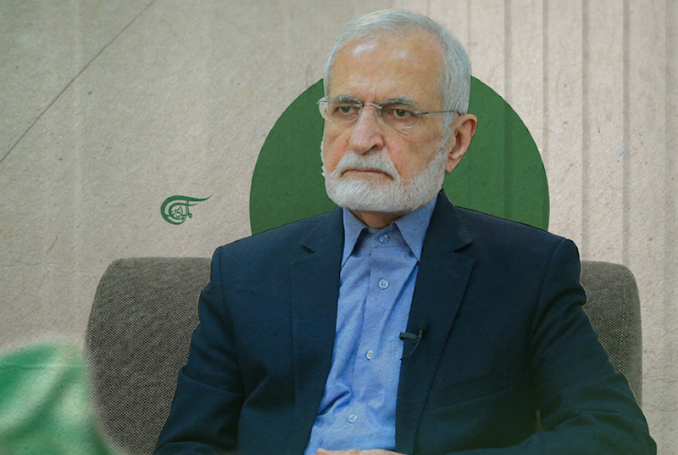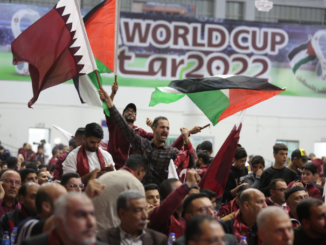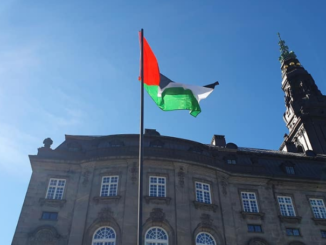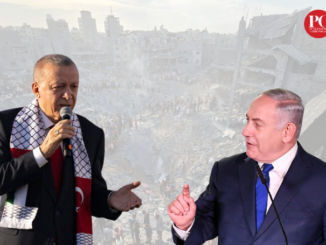
Kharrazi suggested that adjustments to Iran’s nuclear doctrine could be considered in the face of direct threats.
In an exclusive interview with the Lebanese news network Al-Mayadeen, Dr. Kamal Kharrazi, head of Iran’s Strategic Council on Foreign Relations, discussed Iran’s strategic approach to the escalating tensions in Gaza and Lebanon, stressing the country’s readiness to respond to any escalation while underscoring Iran’s preference to avoid further conflict.
Kharrazi highlighted Iran’s military strength and noted potential adjustments in its nuclear policy, should Iran face any “existential threats,” framing his statements in the context of Iran’s commitment to national sovereignty and security.
Condemnations and Cautions: Global Reactions to Israel’s Assault on Iran
Addressing the country’s military posture, Kharrazi underscored Iran’s deterrence capabilities, referencing Operation True Promise II as a demonstration of Iran’s missile prowess.
He cautioned that continued hostilities by Israel would be met with a strong Iranian response.
Kharrazi also suggested that adjustments to Iran’s nuclear doctrine could be considered in the face of direct threats, reaffirming Iran’s technical capacity to develop nuclear weapons, though constrained by a Fatwa from Iranian Leader Sayyed Ali Khamenei against nuclear armament.
In the same vein, Kharrazi mentioned potential changes to Iran’s missile policies, indicating that current missile ranges have been moderated in consideration of Western countries’ concerns. However, he warned that if Western nations disregarded Iran’s security and sovereignty, Iran might extend the range of its missiles in response.
‘Unchecked Impunity’ – Iran Warns UN that Israel’s Aggression Destabilizes Entire Region
‘Unequal War’
Kharrazi condemned what he described as an “unequal war” in the region, accusing Israel of conducting ethnic cleansing and violating human rights.
He cited Israel’s recent obstruction of the United Nations Relief and Works Agency (UNRWA) from delivering vital supplies to Gaza, calling this act “the climax of anti-humanitarian values” and urged the international community to pressure Israel to stop its aggressive actions.
Regarding negotiations for a ceasefire, Kharrazi clarified that Iran would not interfere in such discussions, which he deemed the sovereign right of Lebanon and Palestine.
Major Security Breach – US Documents on Israel’s Iran Attack Plans Leaked
He reiterated Iran’s support for any decision made by these nations and reaffirmed Iran’s commitment to previous agreements, albeit with disappointment over the opposing side’s lack of adherence and continued imposition of sanctions on Iran.
Kharrazi reflected on the legacy of Hezbollah leader Martyr Sayyed Hassan Nasrallah, whom he described as a respected figure and an influential leader within the Islamic world.
On Iran’s relations with Russia and China, Kharrazi highlighted Iran’s support for the evolving geopolitical landscape, describing Russia and China’s aspirations to build a new international order as a move away from Western dominance.
He pointed out Iran’s active role in multilateral organizations such as BRICS and the Shanghai Cooperation Organization, which align with this vision for a balanced global governance framework.
Additionally, Kharrazi noted that Iran’s comprehensive agreement with Russia was nearly finalized and is expected to be signed during an upcoming bilateral visit.
He emphasized the importance of regional stability and cooperation, stressing that neighboring countries recognize Iran’s strategic policy to foster security in the region.
(PC, Al-Mayadeen)










Iran has the undeniable right to defend itself. I’m an American citizen who is 100% against what my so-called government is doing. My uncle Sam is the serial killer of the world.
” Israel ” is the Son of Sam.